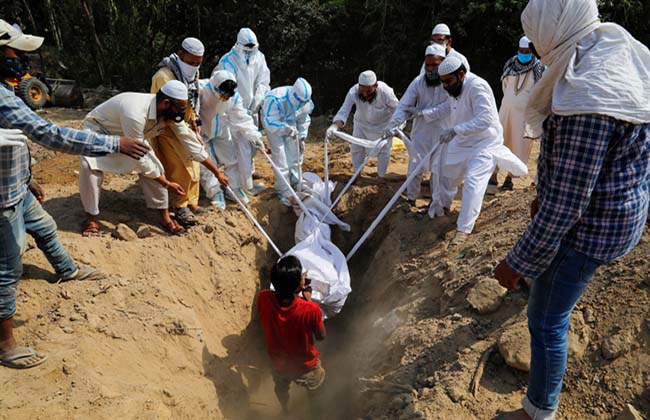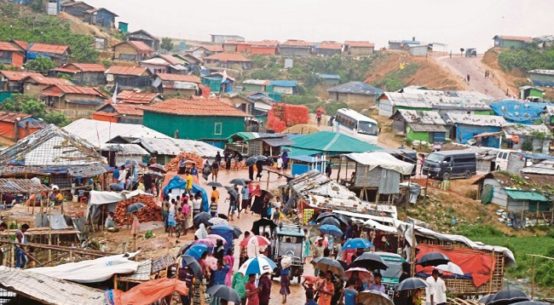
Bangladesh may have given priority to economics over health in its intent to relax the sort of a serious lockdown. It was never very strict in the first place and except for the first day, it was not taken too seriously either by the imposers or the imposed upon. Police were seen in some action but whether they generated more controversy – doctor’s ID card fiasco- or crowd control, one isn’t sure. Current infection and death rates reflect the situation of two weeks before so the impact of the present is not in. By the time we know the ‘lockdown’ will be largely gone.
One suspects an element of fatalism may be at work as far as the health issues are concerned because it’s impossible to prevent human traffic between India and Bangladesh, where the big virus bang has burst. India has become the great hub of not just the South Asian pandemic but of the world. And Bangladesh is relatively powerless to stop that virus breeding beast.
Even in that scenario, a management plan of various case scenarios are needed including the worst. India has become an example, how vaccine production efficiency and inefficient disease surveillance can function at the same time. South Asia lags behind and Indians need a reality check about its capacity in the general health sector.
The number of possible or even current infections and deaths are not really significant anymore because the medical care giving capacity of Bangladesh has reached its limits. It was not very ready like the rest of the world but whatever it had was also not much. The public sector is hamstrung by many limitations but a private sector health care facility has not grown up either. Thus the number of patients that can be looked after effectively has already reached its limits.
The role of corruption has come up many times and this time too, the case of the disappearing hospital emerged. Naturally, it has disappeared from media headlines already because the health sector and corruption has become so synonymous with each other.
However, instead of looking up corruption as a crime which it no longer is due to its systemic production, it should be seen as a systemic problem caused by inefficiency. Not only is the official governance system unable to deliver adequate health services but has been more successful in generating money making without providing services. It’s not corruption but incapacity to deliver services that is the issue.
Bangladesh may get hit by a massive or a minor viral tsunami and many may die or some may but a country with a 160 million people will not be surrendering because people are not of the giving up variety. As before, everyone may wait for nature to do its work rather than human will. It’s beyond the ability of the current health system to do more than what has been done.
Let’s hope Bangladeshi people perform economically much better than their official counterpart. And let’s look at new models including community driven health services which operate beyond the GOB and the profit making sector.


